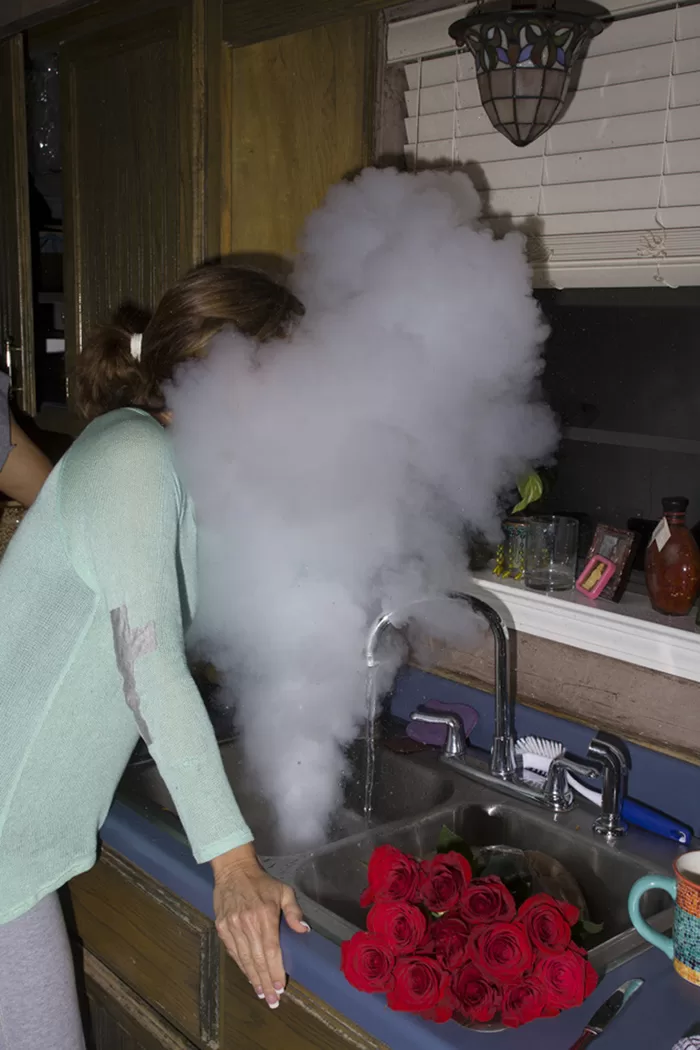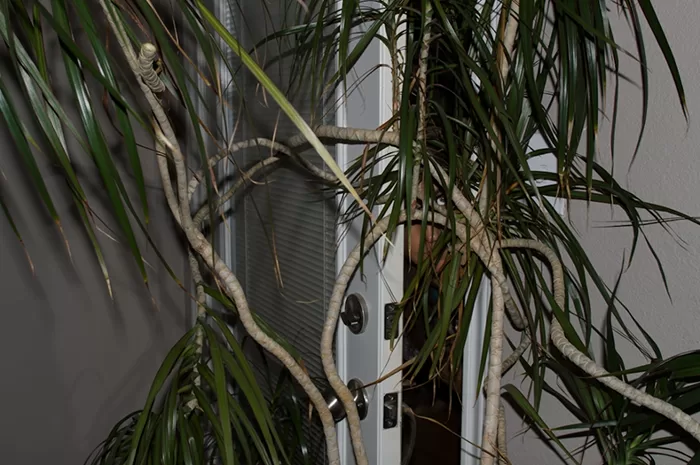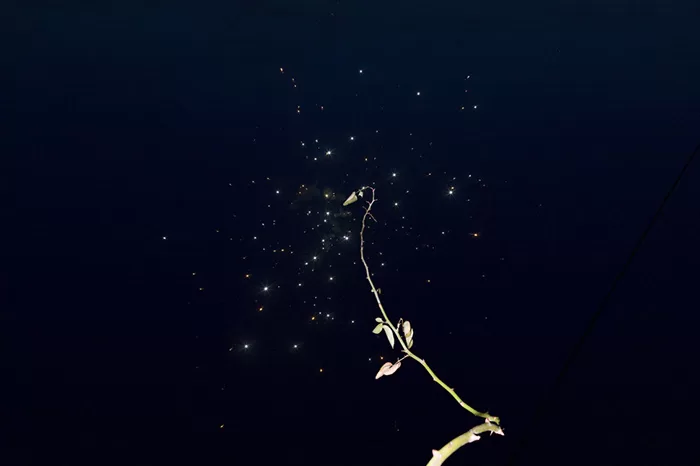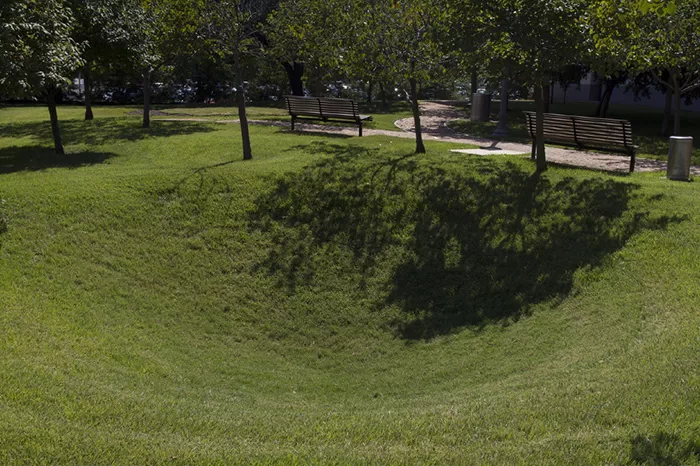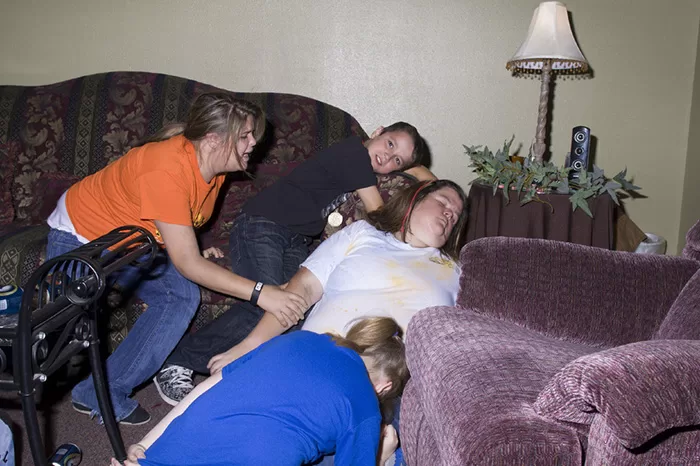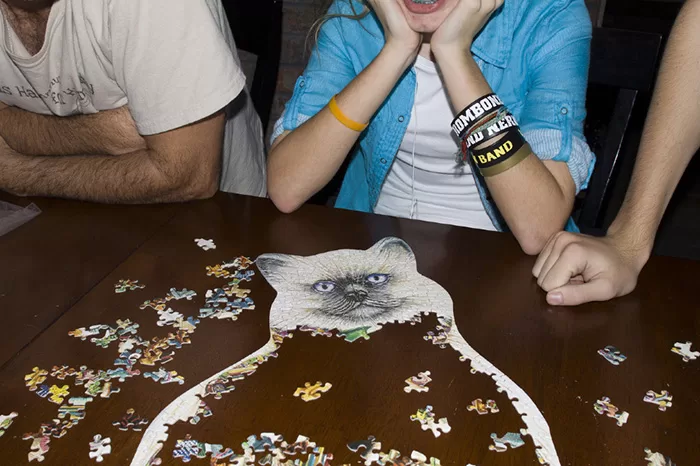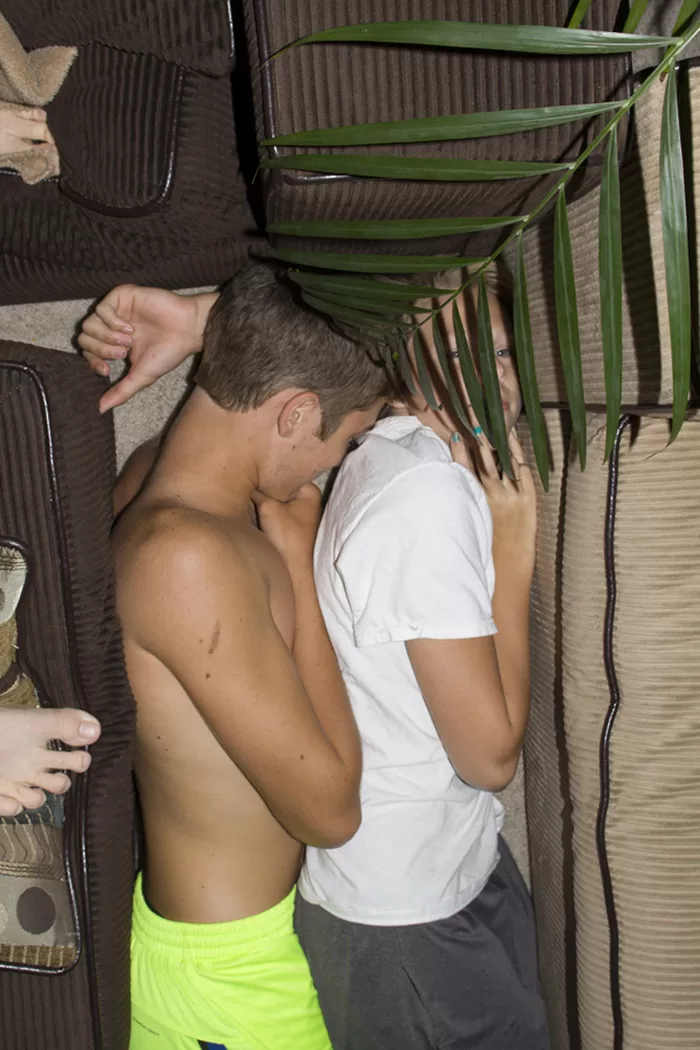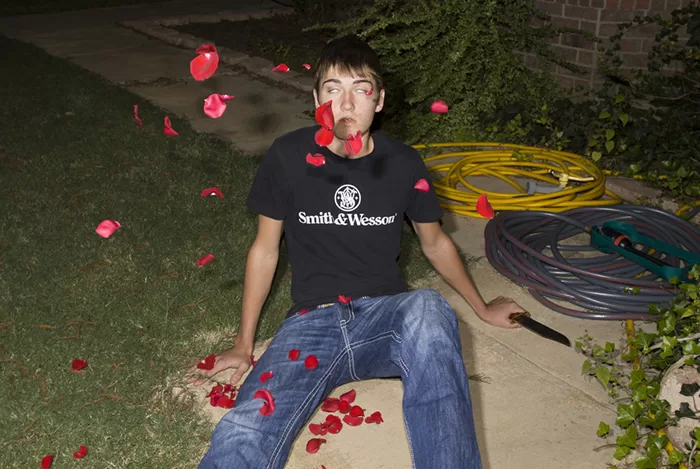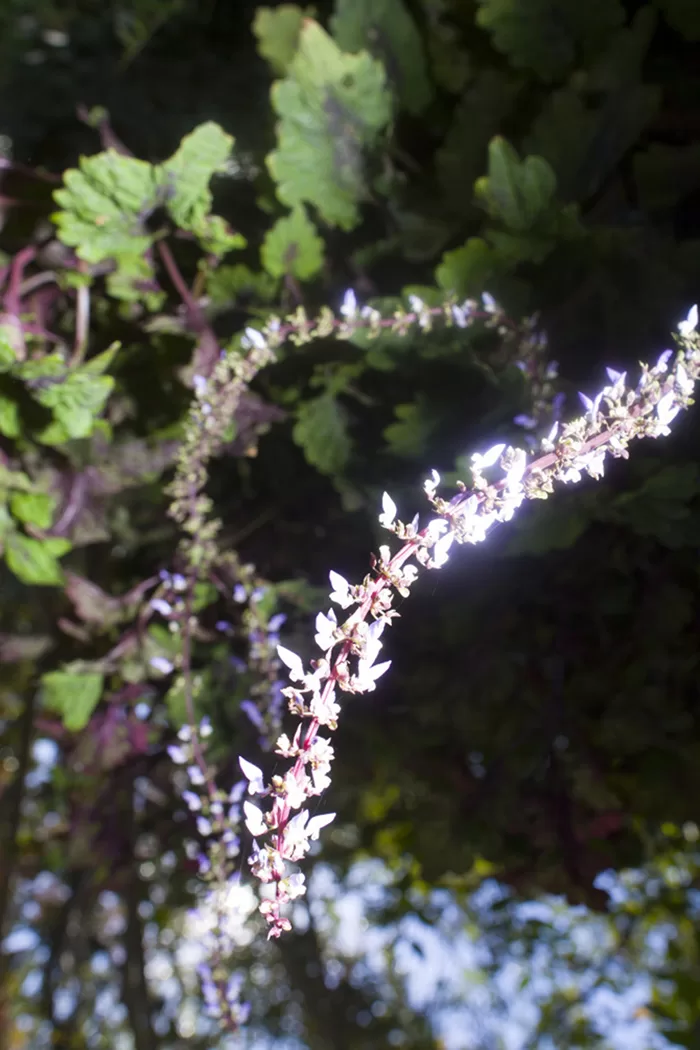Cole Don Kelley: Postcards from the Purgatory
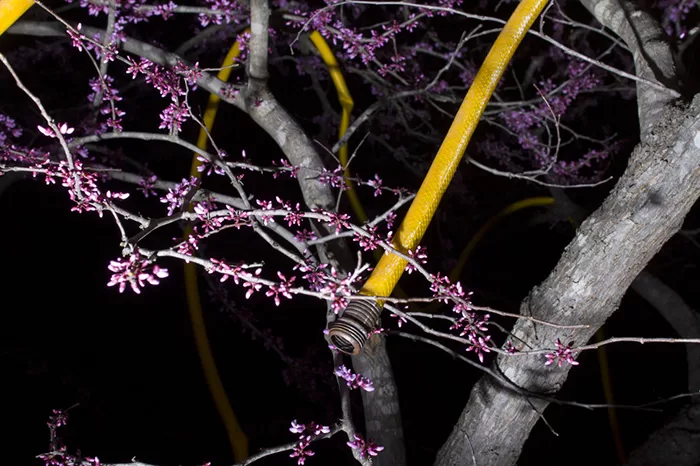
Dante’s Purgatory looks like a mountain, divided into concentric cornices in which the souls expiate their sins in order to be purified before their ascent to Paradise. In the Comedy, the Purgatory is the reign of melancholy, the one where the act of waiting leads to eternal purification. It is a space in-between, a non-place, through which we must pass in order to end up somewhere else, maybe different. Like a modern airport or a train station, where we just find ourselves in transfer onto the next train and finally get to our next destination.
Cole Don Kelley takes pictures of these lazy souls and melancholic places.
The first image in his series Some New Pictures is a yellow hose hanging from a tree, a plastic captivating snake that we feel we want to touch but know we will get hurt. In his photographs, nature is omnipresent and is animated by a religious aura; a plant, some flowers, a sky full of stars, as if each of these elements is a reminder for us of the Garden of Eden, the highest point of the Purgatory’s mountain; the access to salvation but also the place where you can get trapped and fall down to the feet of the mountain again.
A group of fascinating (and, most of the time, young) folks are spending their lazy lives in these magical and dreamlike places. They don’t seem to be doing anything in particular apart from waiting and gathering together to kill time. Cole’s subjects never look lost or hopeless because they know that redemption will take place sooner or later and they know they will be part of it too. That’s what they are waiting for, together. Some of the most powerful images are the ones where the group spends time in the same room. By sharing the same space, it looks like they’re playing by the rules of a game we don’t know. We can tell they are having some kind of fun but for some reasons we cannot share that amusement. And neither can Cole, who is our reporter from the Purgatory and like us, doesn’t feel part of the world he is documenting, since he pessimistically knows that everything will come to an end.
This permeated pessimism – in the world we live in, in our future, economy, and relationships – is omnipresent in his work. We could consider it as a document of our cultural, political and economic crisis. As always happens in front of a critical situation, the human kind tends to turn to faith in order to find a more certain tomorrow. It’s a matter of shifting our perspectives, in favour of some kind of change. If we consider this new world we are living in to be the beyond, well maybe we actually are in some kind of purgatory and we are just waiting for something else to happen.
Cole doesn’t belong here; he is just posting postcards from that Purgatory.
